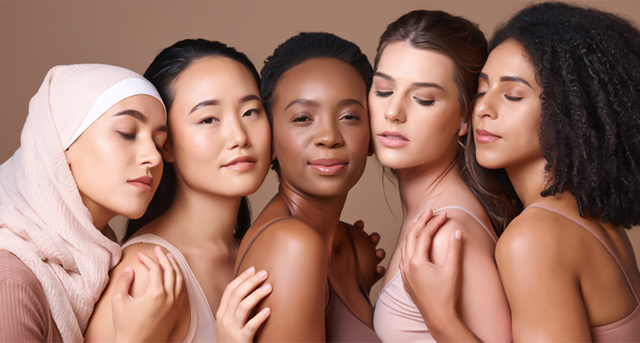Is Laser Hair Treatment Suitable for All Skin Types?

Understanding the Considerations
Laser hair treatment is one of the most popular aesthetic treatments that has been trending for quite some time. It is a non-invasive and effective way to permanently reduce unwanted hair growth on various parts of the body. However, many people are still unsure whether this treatment is suitable for their skin type or not.
Different skin types have different levels of melanin, which makes it crucial to understand the considerations before opting for laser hair treatment. In this article, we will discuss whether laser hair treatment can be used on all skin types and what factors you need to consider before making a final decision.
Explaining Laser Hair Treatment
Laser hair treatment is a popular method of removing unwanted hair growth, but it isn't suitable for all skin types. Image perfect Laser provides you details or services of laser teatments. This treatment uses high-intensity light beams to target the melanin in hair follicles and damage them. However, melanin is also present in the skin, which means that laser hair removal can cause pigmentation changes or burns if not done correctly.
When considering laser hair treatment, it's essential to determine your skin type first. The Fitzpatrick scale classifies six different skin types based on their reaction to sun exposure and ethnic background. People with darker skin tones (Fitzpatrick scale IV-VI) have more melanin in their skin and are at higher risk of experiencing adverse effects from laser treatments.
Breaking down the process
When it comes to laser hair treatment, one of the most important considerations is skin type. Not all skin types are suitable for this procedure, and understanding what to look for can help ensure the best possible results. While laser hair treatment can be an effective way to remove unwanted hair, it is not a one-size-fits-all solution.
The process begins with an evaluation of the patient's skin type. This involves a physical examination as well as a discussion about any medical conditions or medications that may affect the outcome of the treatment. Based on this information, the practitioner will determine whether laser hair treatment is appropriate and what type of laser should be used.
Skin types and laser hair treatment:
When it comes to laser hair treatment, not all skin types are created equal. The success of the procedure depends heavily on a person's skin type, as well as hair color and texture. Laser hair treatment works by targeting the melanin in the hair follicle, which absorbs the light energy from the laser and destroys the follicle. However, this process can also damage surrounding skin tissue if not done correctly.
People with lighter skin tones tend to have better results with laser hair treatment because their skin has less melanin than those with darker skin tones. This means that there is less risk of damaging surrounding tissue during treatment. However, newer technology is allowing lasers to be used safely on darker skin tones as well.
Risks and side effects:
While laser hair treatment is generally safe and effective, there are some risks and side effects that individuals should be aware of before opting for the procedure. One potential risk is the possibility of skin irritation or burns, particularly in individuals with sensitive skin or those with darker skin tones. It is important to have a consultation with a licensed professional prior to undergoing laser hair treatment to determine if it is suitable for your skin type.
Another side effect that may occur after Laser treatment is temporary redness or swelling around the treated area. This typically subsides within a few hours to a few days following the procedure. Some individuals may also experience temporary changes in skin pigmentation or texture, although these side effects are rare and usually resolve on their own over time.
Alternatives to laser hair treatment:
While laser hair treatment has become a popular option for permanent hair reduction, it may not be suitable for everyone due to various factors such as skin type, hair color and thickness. However, there are alternatives available that can help remove unwanted hair without the use of lasers.
One such alternative is electrolysis which uses a small needle inserted into each individual hair follicle to destroy the root with an electric current. This method can be time-consuming as it treats one follicle at a time but is effective on all skin types and hair colors. Another option is intense pulsed light (IPL) treatment which uses broad-spectrum light to target multiple hairs at once. It works best on fair skin with dark hair but may not be effective on darker skin tones. IPL also requires multiple sessions for optimal results like laser treatments do.
Conclusion:
In conclusion, laser hair treatment can be a safe and effective hair removal option for many people, but it's not suitable for everyone. Skin type is an important consideration when deciding whether to undergo laser hair treatment. People with darker skin tones may need to seek out a specialized laser or take extra precautions to avoid skin damage during treatment. Similarly, those with certain medical conditions or taking certain medications may not be good candidates for laser hair treatment. It's important to discuss your individual situation with a qualified dermatologist or other healthcare provider before making any decisions about laser hair treatment. By understanding the considerations and risks associated with this procedure, you can make an informed decision about whether it's right for you.